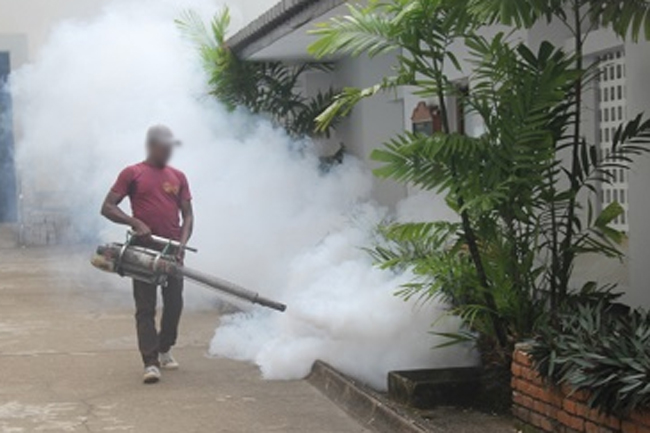June 30, Colombo (LNW): Sri Lanka has launched a nationwide mosquito eradication drive today (30), marking the start of a week-long campaign aimed at curbing the spread of mosquito-borne illnesses such as dengue and chikungunya.
The initiative, which will run until July 05, comes in response to a notable surge in infections following recent bouts of heavy rainfall across the island.
With stagnant water providing ideal breeding conditions for mosquitoes, health officials are stepping up efforts to tackle the root causes of disease outbreaks. The campaign is being spearheaded by the National Dengue Control Unit and involves coordinated action in 16 districts, where more than 1,000 specialised teams have been mobilised to carry out inspections, cleaning operations, and educational outreach.
According to the latest figures from the National Dengue Control Unit, over 28,000 dengue cases have been recorded since the beginning of the year, with the Western Province bearing the brunt of the epidemic.
Alarmingly, 16 deaths linked to the disease have been confirmed during this period, prompting renewed urgency among health authorities.
The campaign will prioritise areas that have been flagged as high-risk, including densely populated neighbourhoods and neglected urban zones with poor waste management.
Medical Officer of Health (MOH) divisions identified as hotspots are being given particular attention, with community involvement being strongly encouraged.
Dr Prashila Samarawira, a community health expert at the National Dengue Control Unit, noted that public participation is critical to the success of the campaign.
She stressed the importance of household vigilance, urging residents to eliminate breeding grounds by clearing gutters, covering water storage containers, and discarding items that can collect rainwater.
Public health officials hope that this intensified national effort will help curb the current outbreak and set a foundation for sustained mosquito control throughout the year.
The government has also called on schools, workplaces, and local councils to support the campaign through coordinated clean-up activities and awareness programmes.

